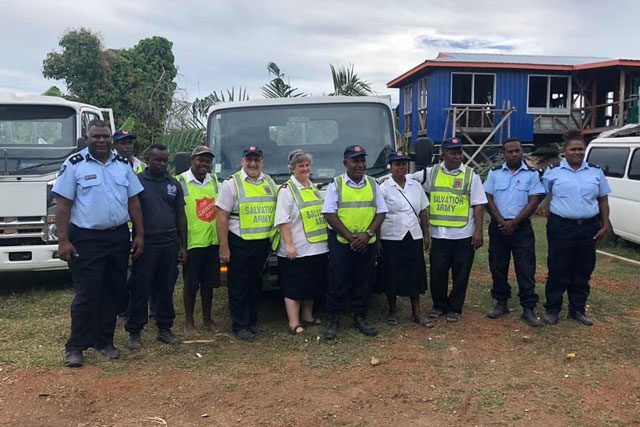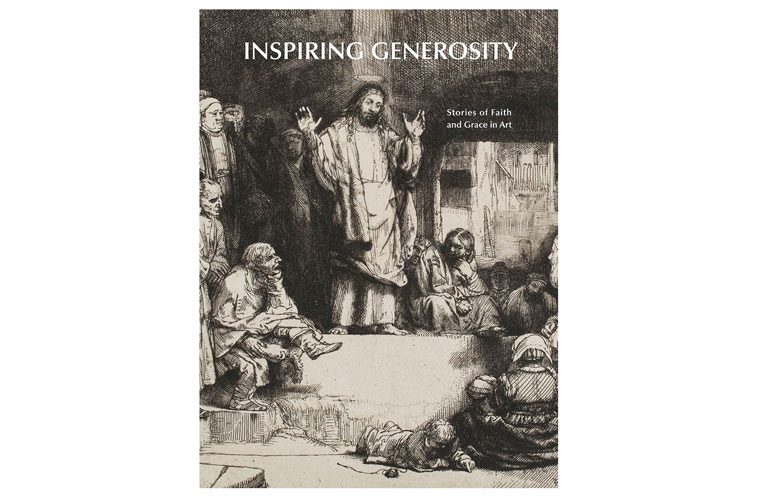Imagine you have a mountain full of dishes with caked-on residue from meals past in your kitchen sink. You know your job is to go in there and get them cleaned, dried and back in their place, but hold on. As you approach the workspace you remember that you forgot to buy sponges when you were last at the store. Just then you realize it was not just sponges, but also dish soap on that list of things not purchased. The problem that eclipses the first two comes when you lift the handle to turn on the sink, and nothing. Not even a drop. Nothing! How can you expect to do this job? How can any mission be complete without the necessary tools?
Have you ever faced a job that you didn’t have the tools for? If so, what was it and how did it make you feel? How did you cope?
The Holy Spirit is something that many Western Christians are great at talking about. We understand his purpose and can even point to places in Scripture where he is seen, but it is another story quite often when considering our actual application of God’s Holy Spirit. Why? The question has long been asked, and many believe that much of it is related to our excess, which leads to comfort and apathy. We need to understand the nature and importance of the Holy Spirit, but much more importantly we must allow his work in and through us. Without the Holy Spirit, we might as well be cleaning a sink full of impossibly dirty dishes with our dry, bare hands. The call is clear and today we look back at the history and current relevance of that call.
Contextualizing the episode
If you take a journey through the book of Joel, you will see the story come full circle, and today it is crowned with the most important message yet. Joel has “his own unique approach to his own special message…an interpretation of a national calamity,” as Warren W. Wiersbe writes in The Bible Exposition Commentary. Even though the majority of the prophet’s message was aimed at Israel, in today’s passage we see something with much further flung implication; this was intended for the whole of mankind. The theme of the book of Joel is “day of the Lord.” This has a two-fold meaning. First, we know that this is when God sends his judgment to his people, but here it is more related to the prophesied “day of the Lord.” This is when all people will be judged and Christ shall return to set up his kingdom, according to Wiersbe.
Consider the end of chapter two. This is coming off the heels of a great devastation and an even greater deliverance. We will understand how “the words of Joel hold a prominent place in the life of the Christian community,” as Timothy Mark Green writes in New Beacon Bible Commentary, Hosea–Micah, as the spirit of God is promised for his people.
Digging in
Read what Scripture says in Joel 2:28-29: “And afterward, I will pour out my Spirit on all people. Your sons and daughters will prophesy, your old men will dream dreams, your young men will see visions. Even on my servants, both men and women, I will pour out my Spirit in those days.”
In response, consider:
- What do you think Yahweh meant when he said, “I will pour out my Spirit on all people?” (Joel 2:28).
- More specifically, who was included in “all people?”
- What does it say about the nature of our God to give us such a gift?
- How could God be willing to give this gift to all people, when “his people” were the Israelites at the time?
- Do these verses tell us that everybody that has the indwelling of the Holy Spirit will prophesy and have meaningful visions and dreams?
Sometimes the language and nature of the prophetic books are hard to swallow. For some of us, that can serve as good reason to simply disregard studying them altogether. The fact is, even though the imagery can be scary and confusing at times, the words of these Godly figures help us piece together the entirety of the biblical narrative.
Digging further
Read what Scripture says in Joel 2:30-32: “I will show wonders in the heavens and on the earth, blood and fire and billows of smoke. The sun will be turned to darkness and the moon to blood before the coming of the great and dreadful day of the Lord. And everyone who calls on the name of the Lord will be saved; for on Mount Zion and in Jerusalem there will be deliverance, as the Lord has said, even among the survivors whom the Lord calls.”
In response, consider:
- How do the words of these verses make you feel? What do you imagine?
- To what extent do you think these prophecies have been or will be fulfilled?
- What is it about the nature of God that causes him to reveal things to his children in such a way?
Verse 32 has an interesting shift in direction. If this passage first shows us God’s people, already filled with the Spirit, and then there is imagery of God’s wrath in the symbols of blood, fire and smoke, then what is Scripture referring to when it says, “those who call upon the Lord?” (Joel 2:32).
- What is meant by verse 32?
- Why would God give people another chance to call on him?
- Does verse 32 give greater purpose to why God reveals such signs to his people?
Referencing the Church
Maybe you know the story of Pentecost, which is celebrated 50 days after Easter Sunday, commemorating the descent of the Holy Spirit upon the Apostles and other followers of Jesus Christ. Well, this prophecy made by Joel at the end of chapter two is interpreted by Peter as the “fulfillment of Joel 2:28-32… The words of Joel thus hold a prominent place in the life of the Christian community,” Green writes.
Application
Read what Scripture says in Acts 2:1-13, 17-21.
- Do you believe that this is what Yahweh was speaking about through the prophet Joel?
Consider for a moment the power and necessity of God’s Holy Spirit. Think about how God “pours out” his spirit for his people. In Green’s New Beacon Bible Commentary he says, “the verb pour out indicates that Yahweh does not hold back or limit the availability of His Spirit, but rather offers His Spirit in a superabundant manner.”
Remember the pile of dirty dishes? In the same way that it is useless to try without any of the necessary tools, so too is it useless to try and live a Christ-like existence without the indwelling of the Holy Spirit.
Reflect on your relationship with the Holy Spirit. How have his qualities assisted you (if at all) in the past? How are you trying to accomplish things on your own without his help? And most importantly, how can you allow his qualities to shine most effectively through you? Consider these questions over the coming days. Write down details of what you notice and make your findings a matter of prayer as you seek to grow in your relationship and likeness with Christ.
Sign up for the Do Good Digest, our weekly newsletter, and stay tuned for a new study of Scripture.
Do Good:
- Find other Bible studies from Caring in the Scripture study library.
- Visit westernusa.salvationarmy.org to find The Salvation Army nearest you.
- Give to support the fight for good in your community.
- Hear this: Your story is uniquely yours. It’s the one thing you have that no one else does. And you’re the one who can tell it best. Take our free email course on how to find your voice, own your story and share it with others.

















